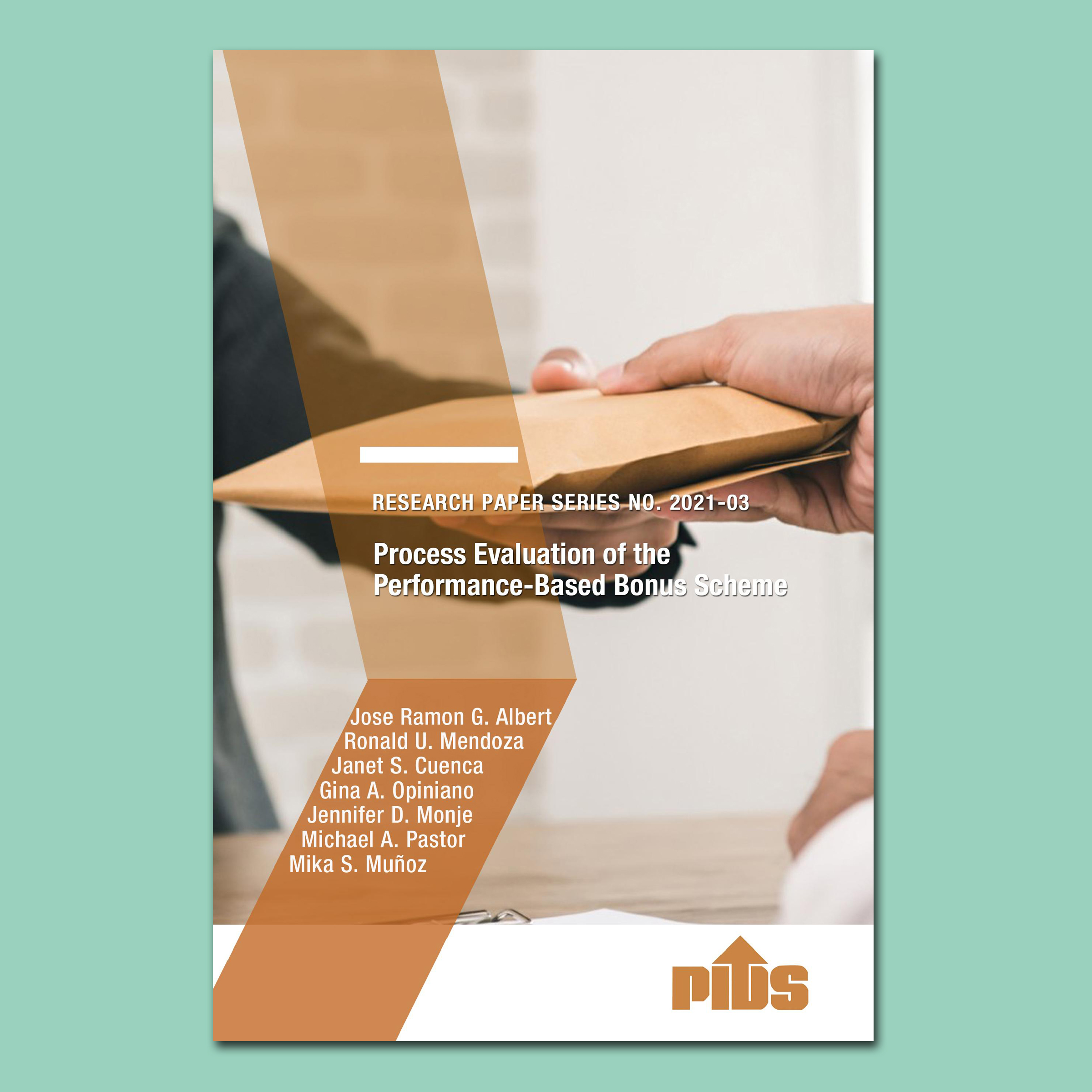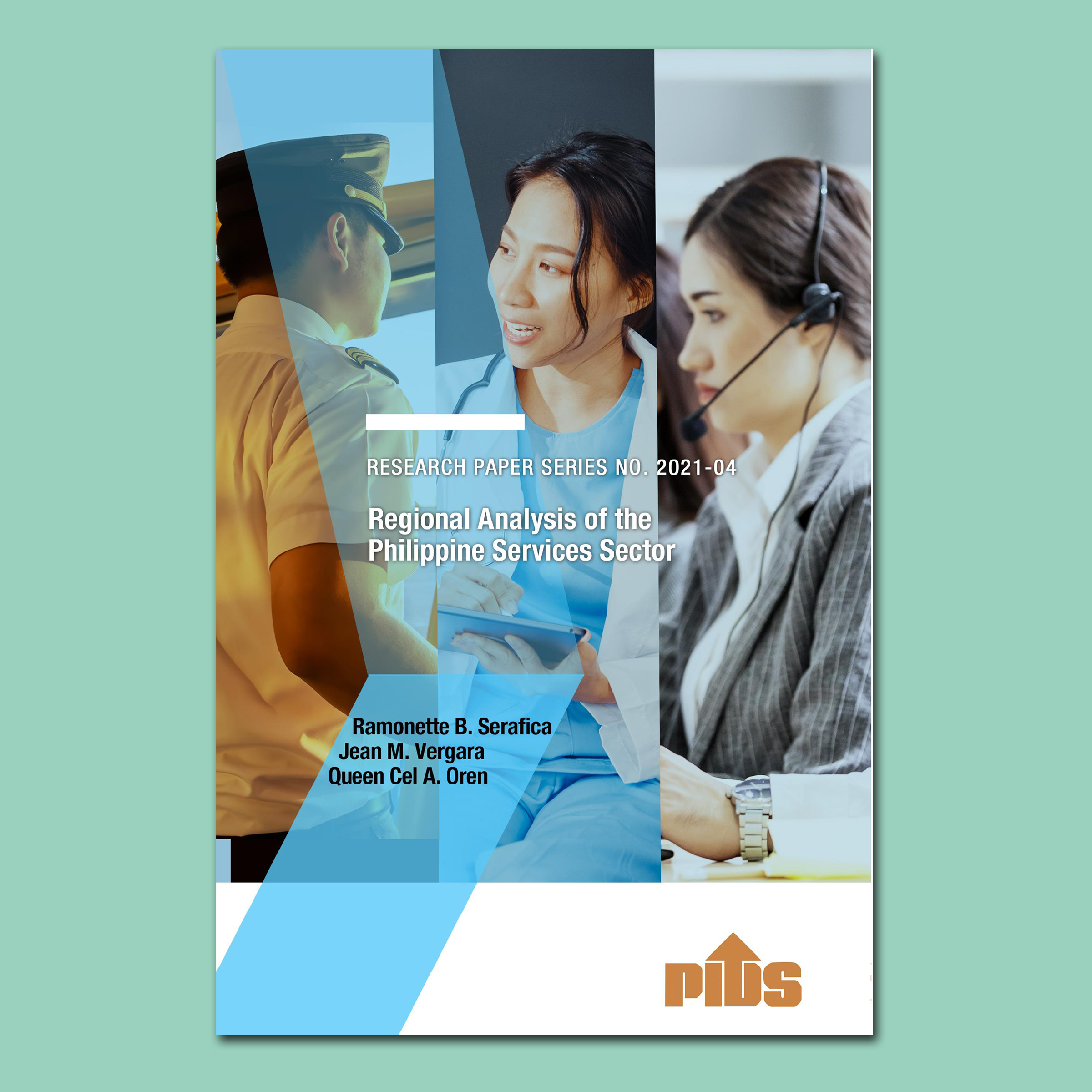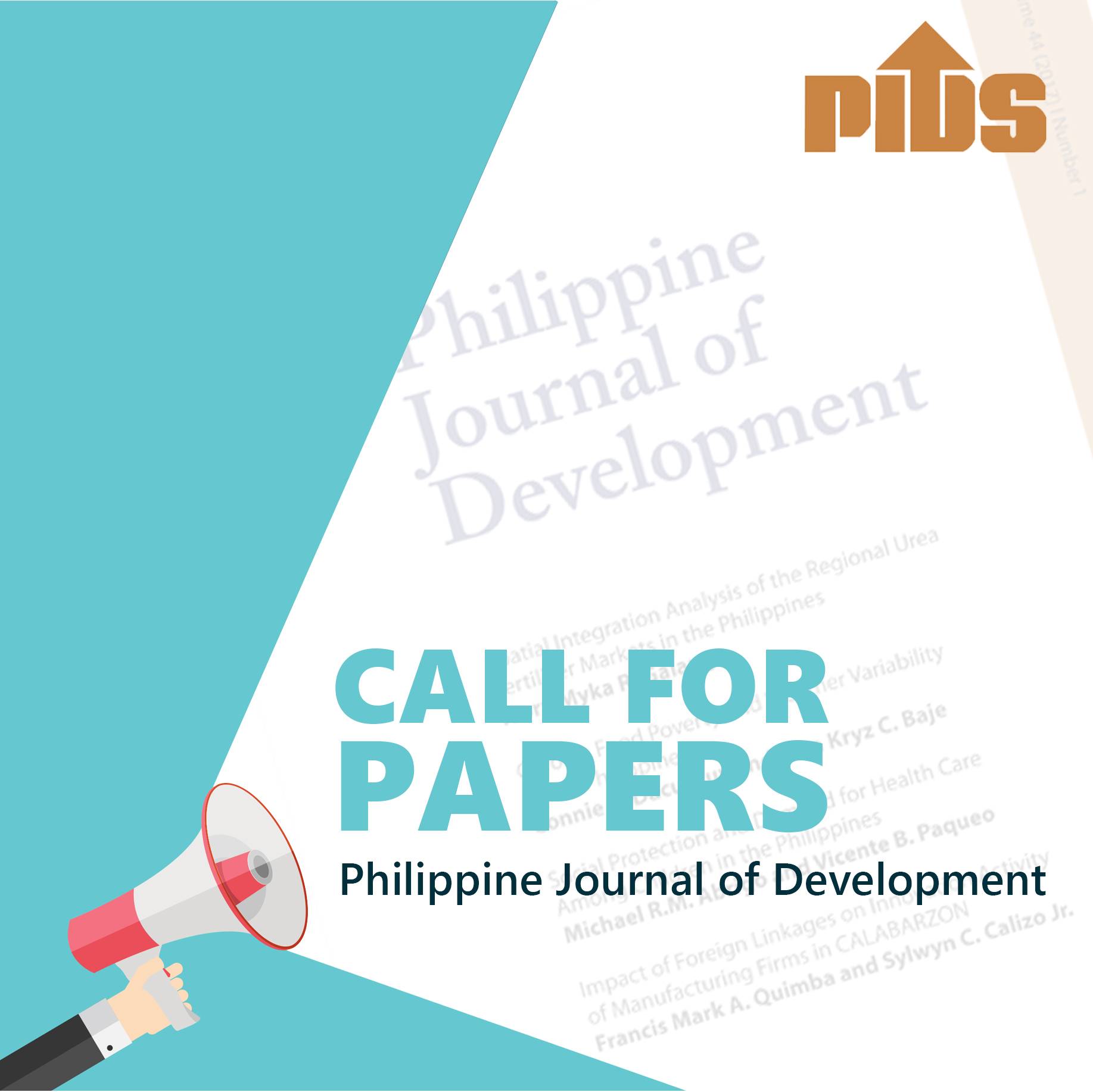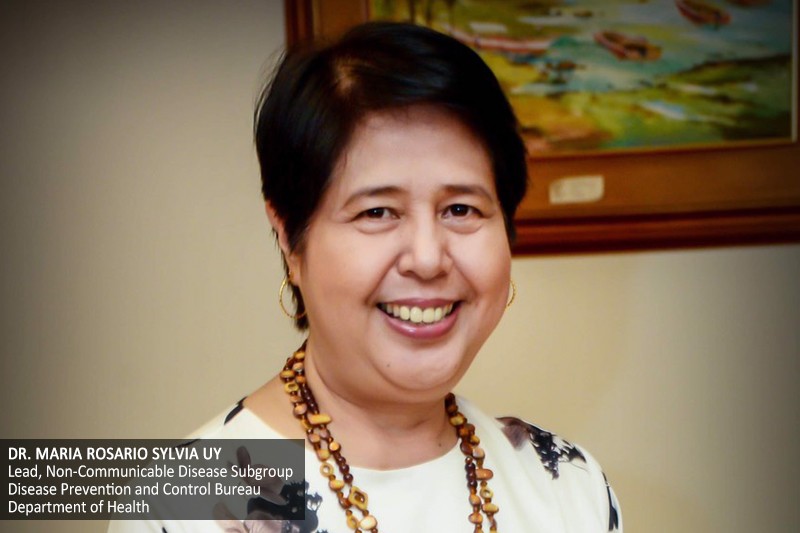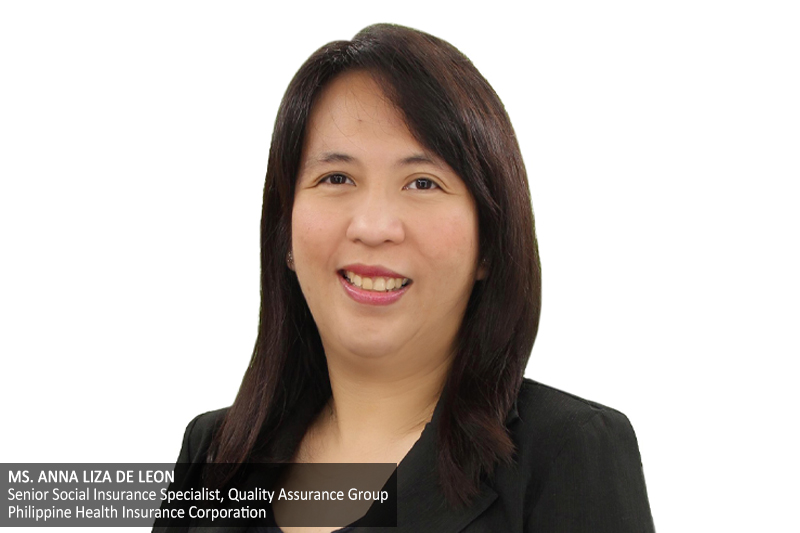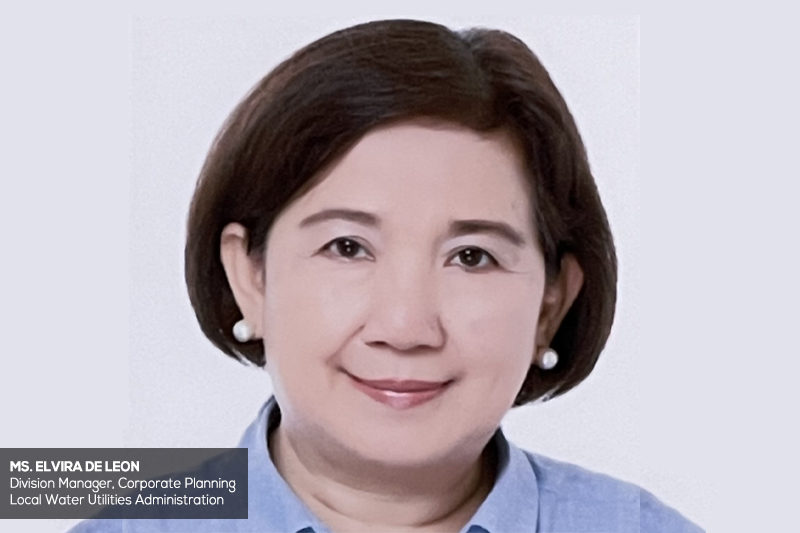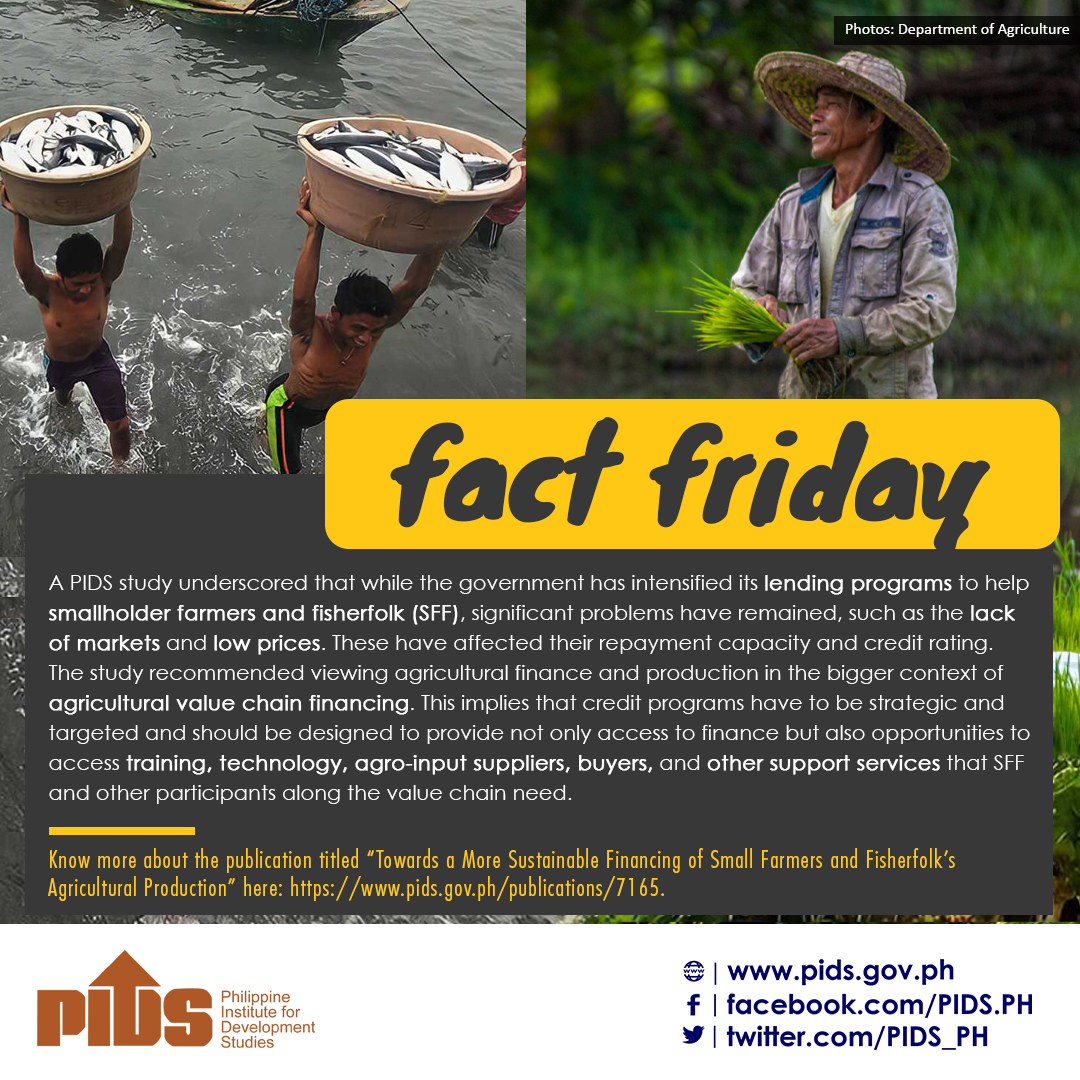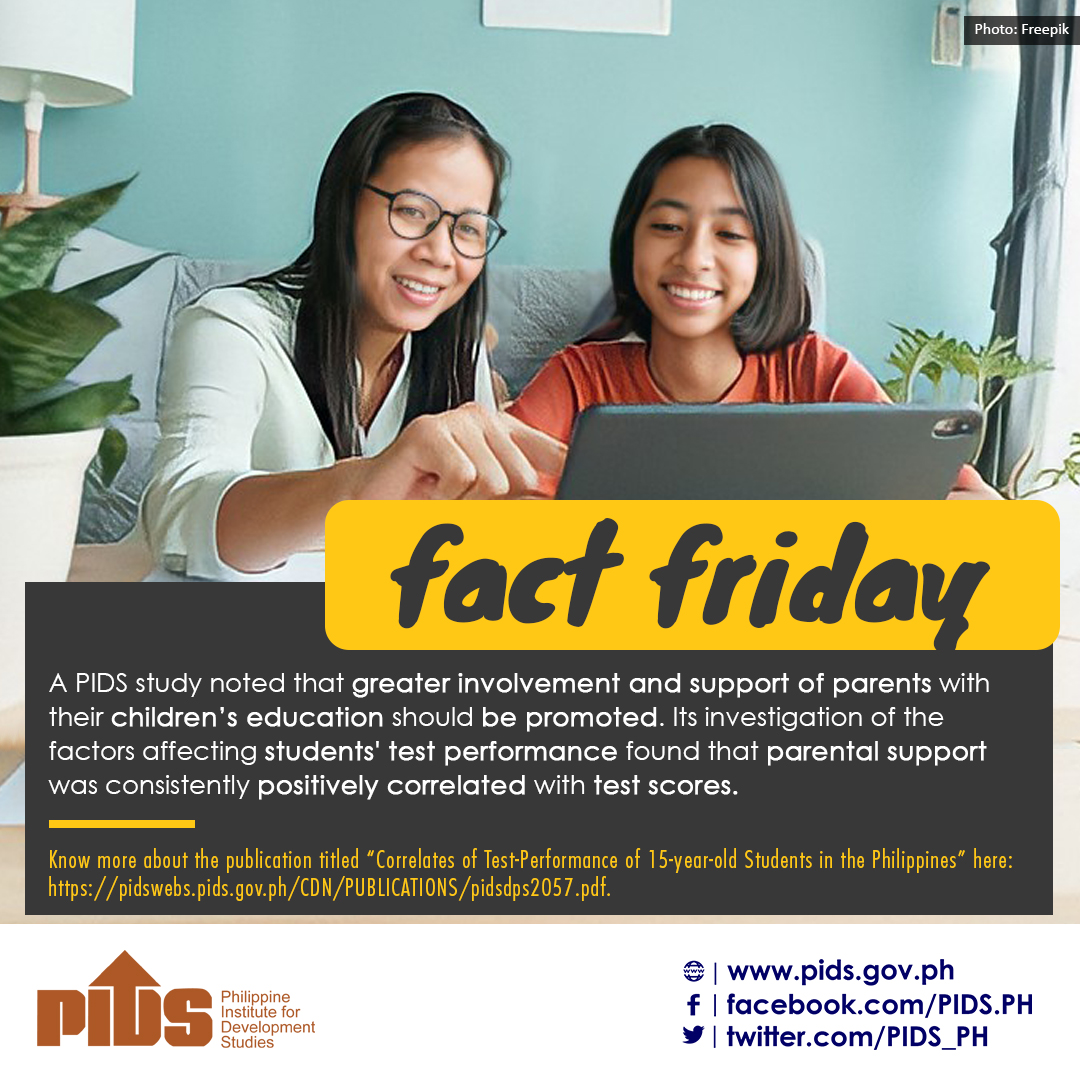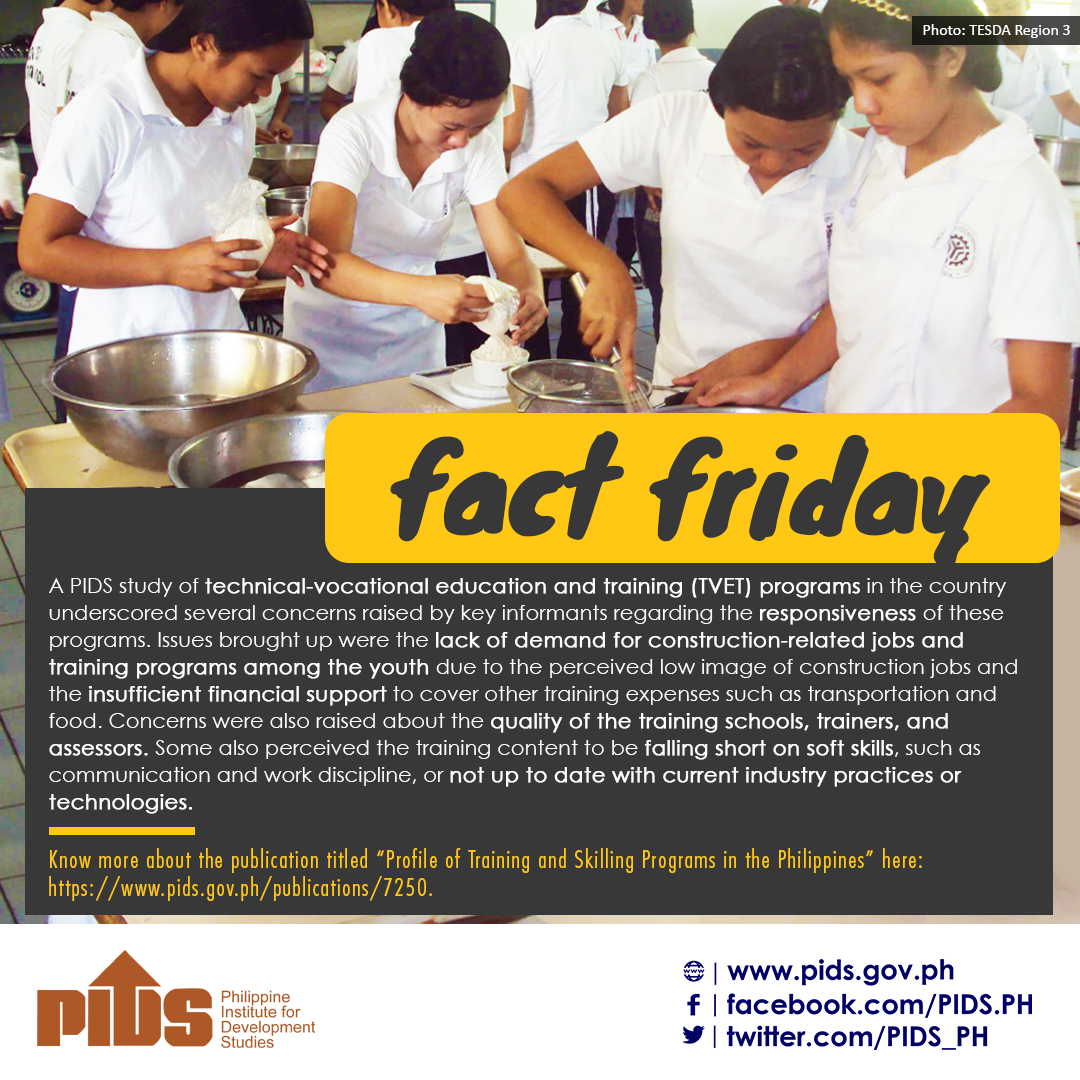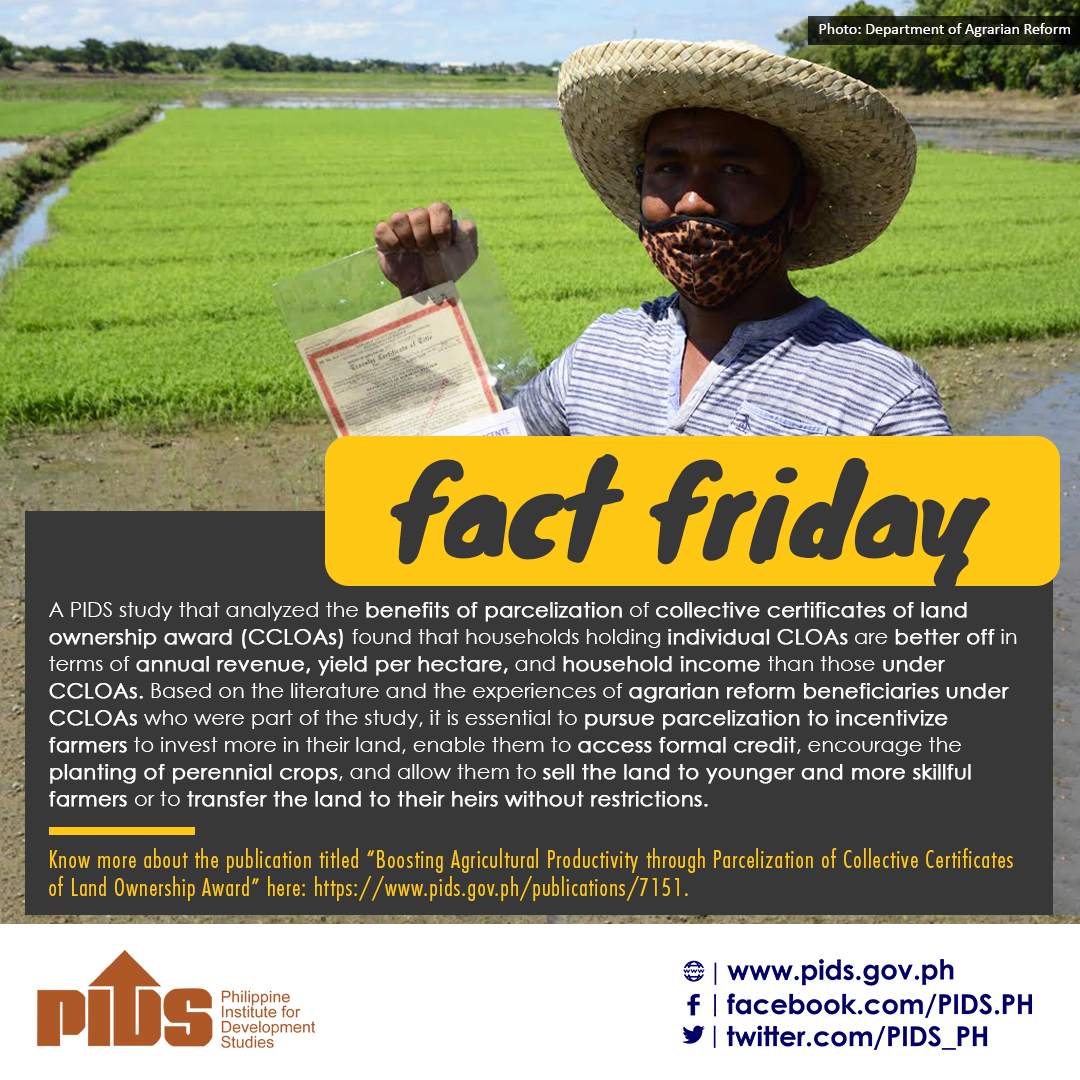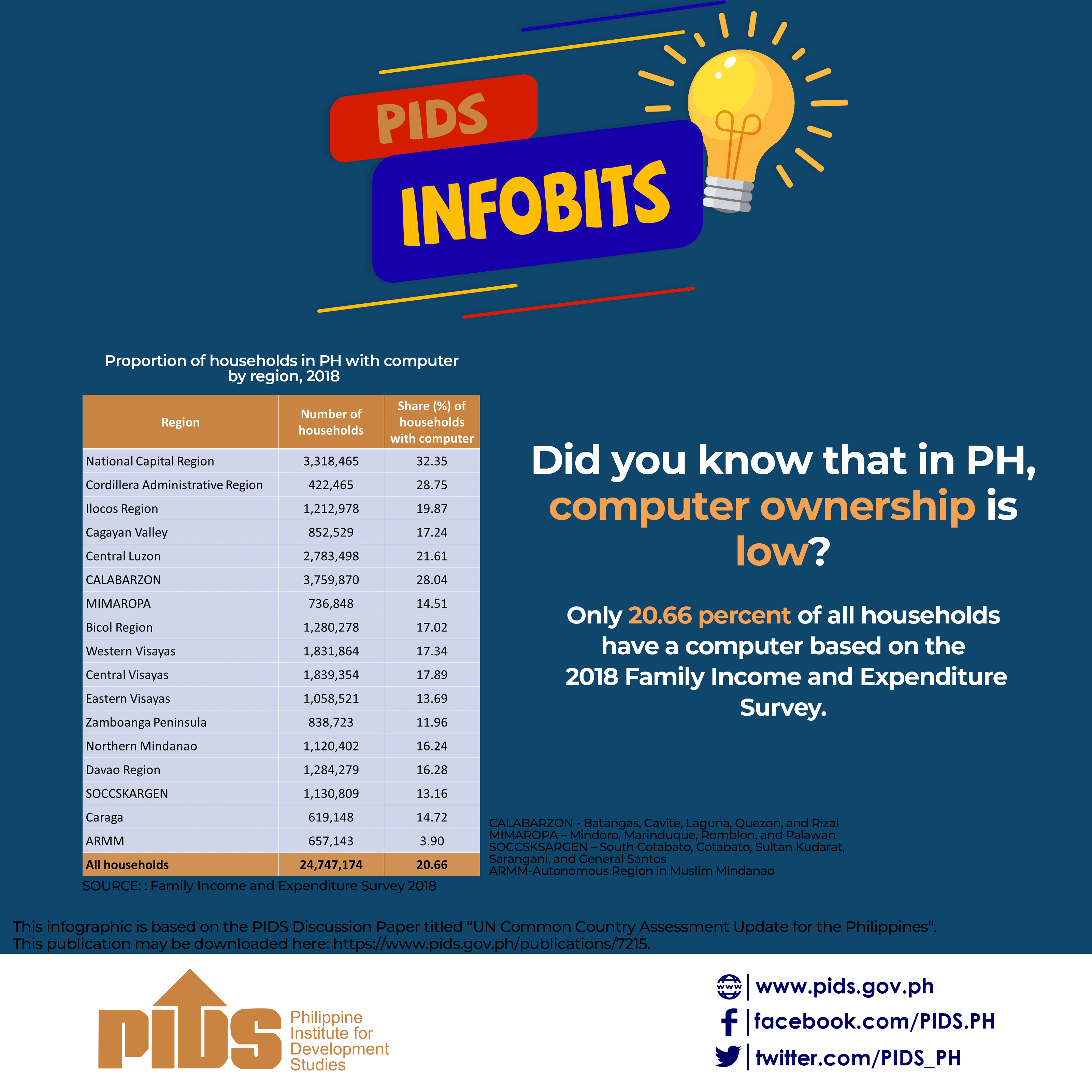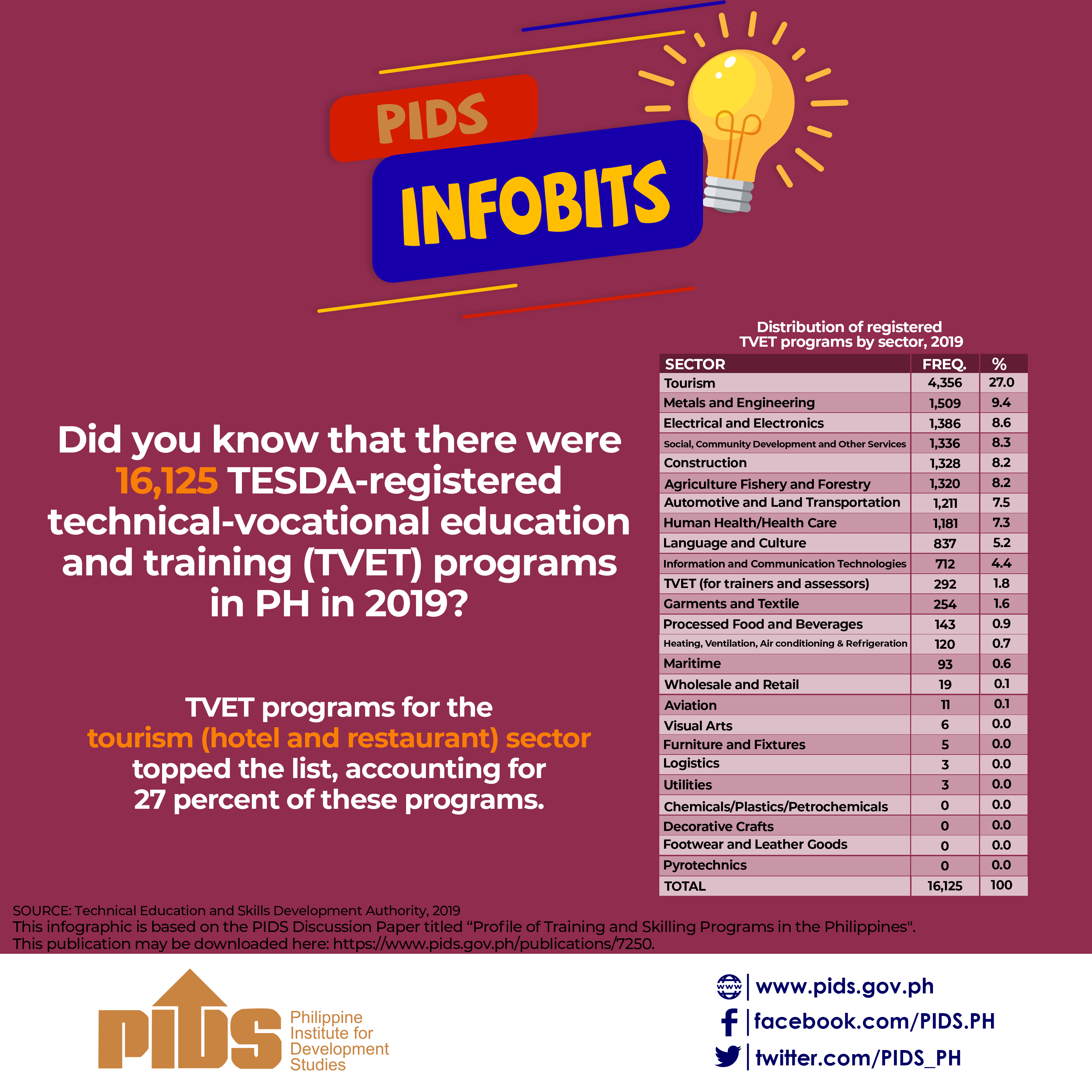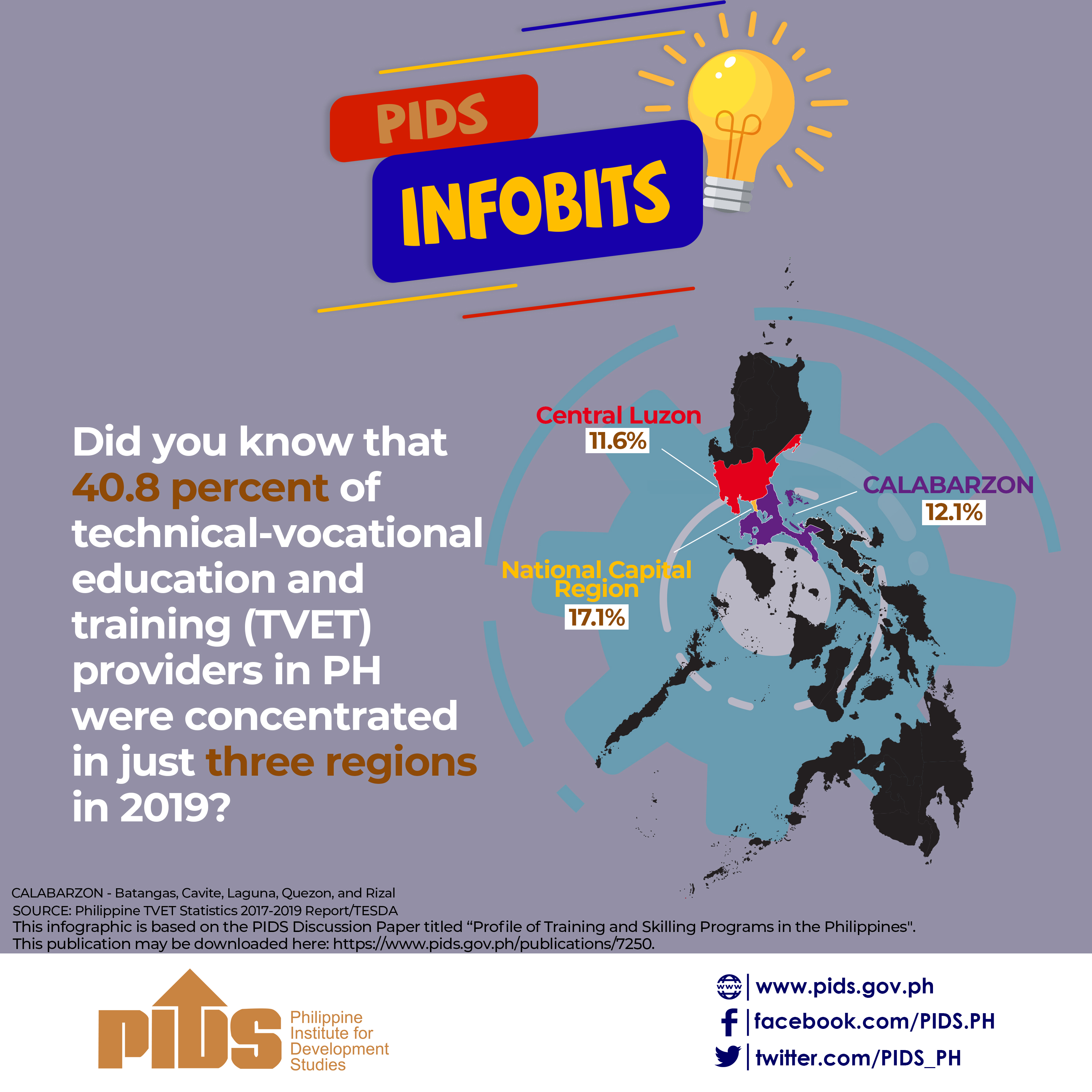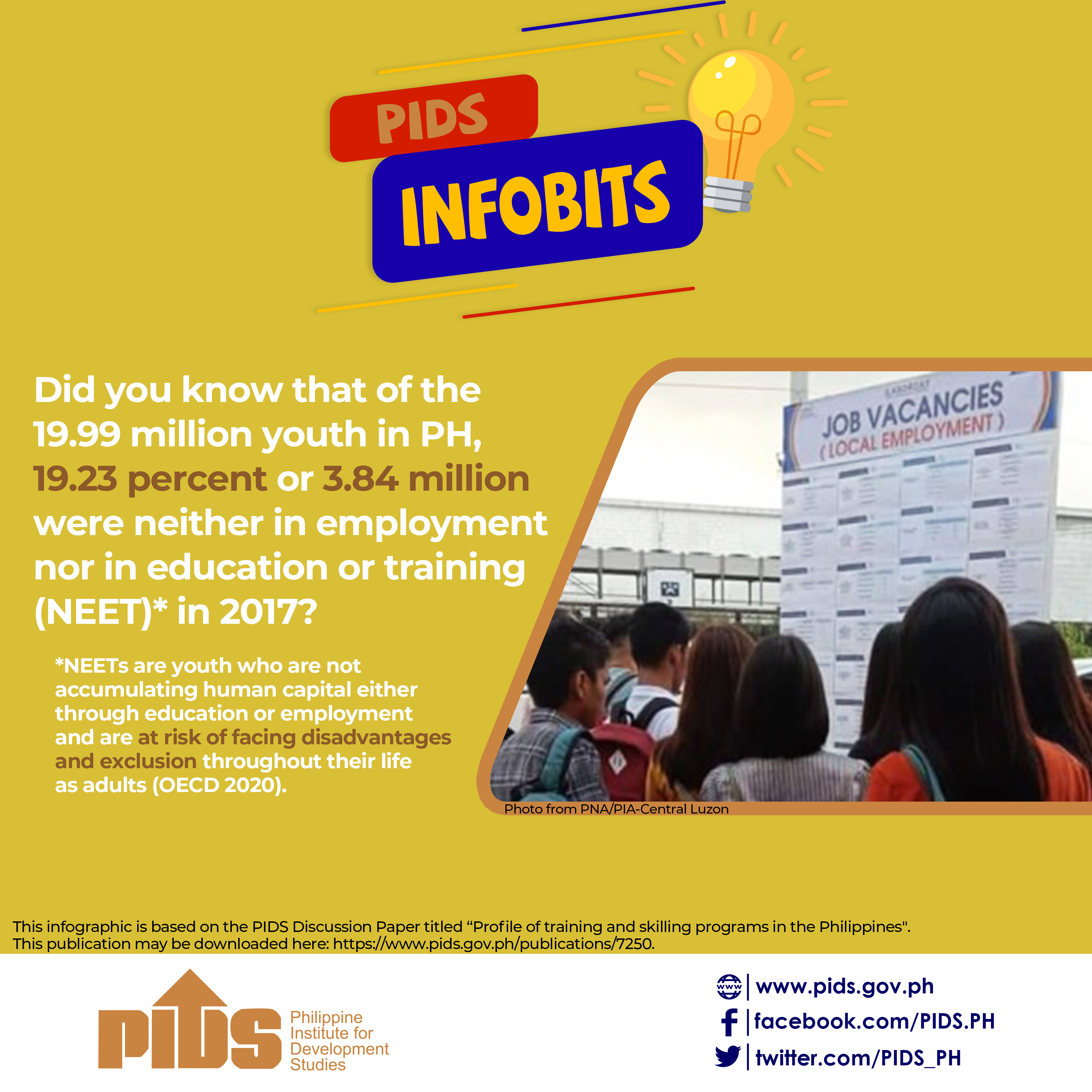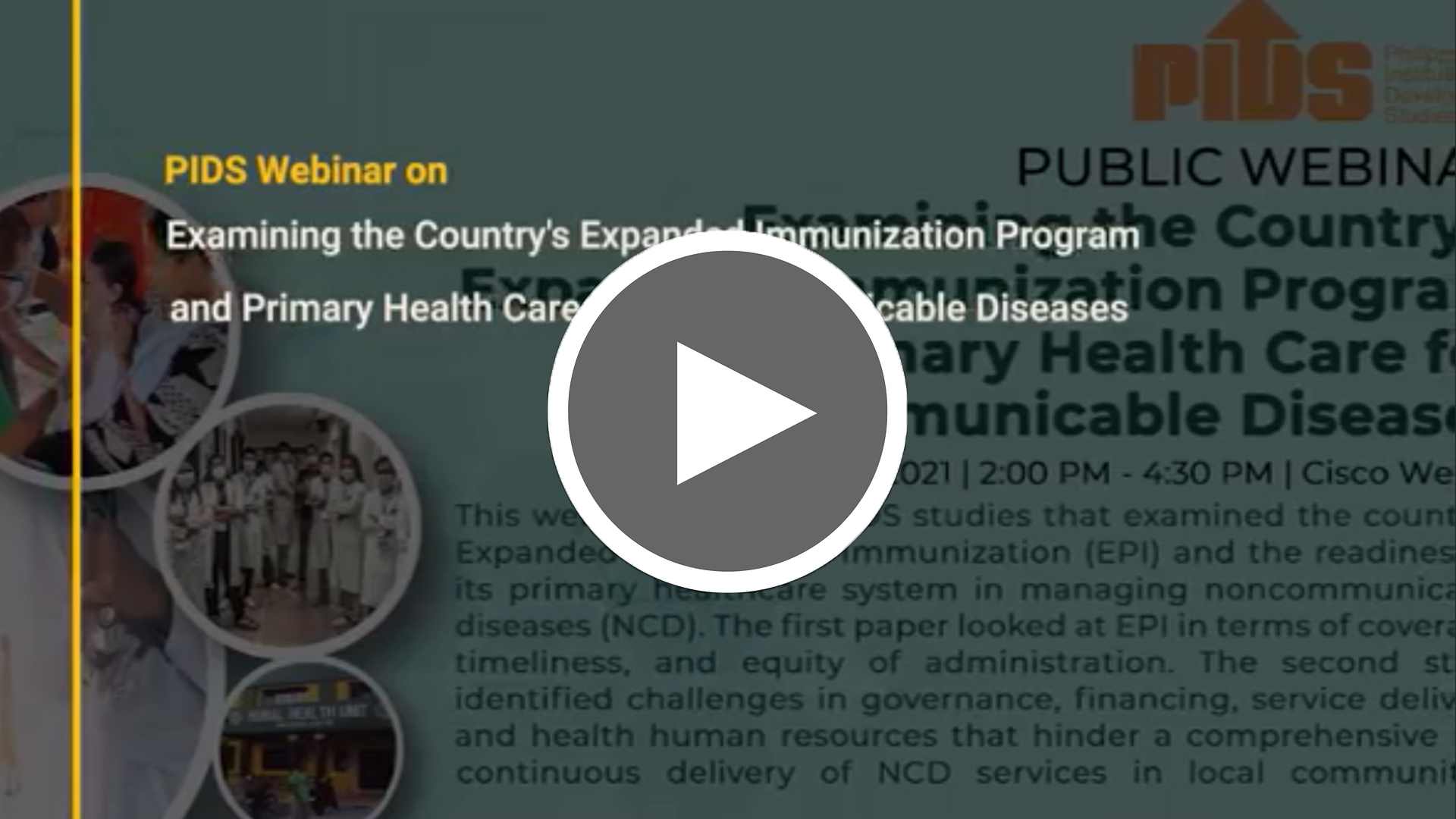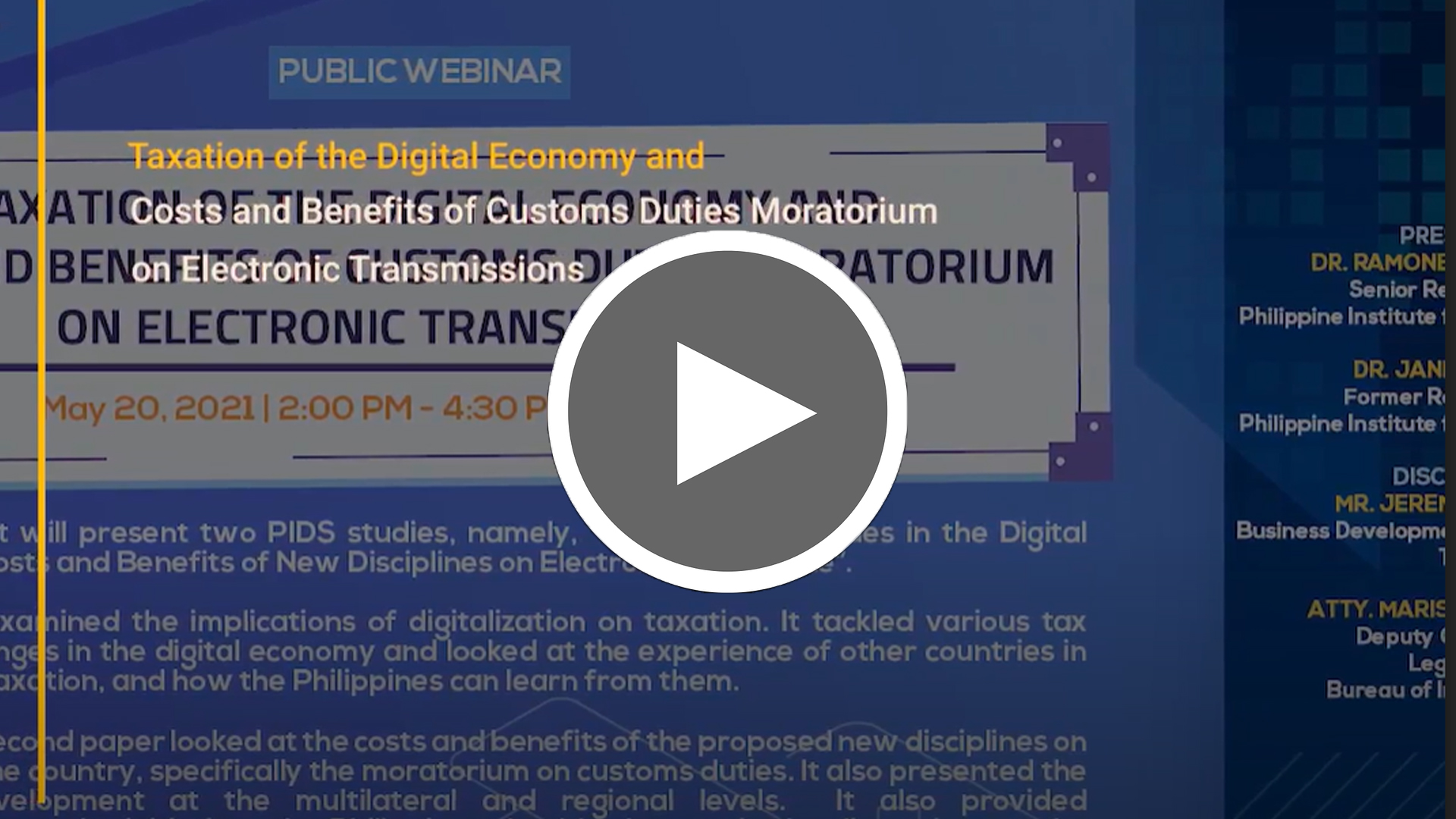Having trouble reading this email? View it in your browser. |
||||
 |
||||
|
||||
RESEARCH PAPER SERIES
This study examines the extent to which the Performance-Based Bonus (PBB) scheme has been executed and identifies implementation deficits, if any. Specifically, it looks into the bottlenecks and challenges encountered by government agencies in meeting the conditions to qualify for the PBB. It also presents initial data on the possible effects of the PBB on at least three levels: (a) agency-wide incentive effects, (b) team-level collaboration effects, and (c) individual staff-member incentive effects. This study finds mixed results on these three main channels of impact. It recommends a general review of the main policy objectives of this reform. It also identifies several concrete reforms that could help sharpen the PBB moving forward. Click here to download the research paper.
In the Philippines, the services sector accounts for 60 percent of gross domestic product and almost 57 percent of employment. Across regions and subsectors, however, the contribution of services varies. Using a simple shift-share technique, this study examines the patterns at the regional and subsector level and decomposes the changes into three factors: national share (growth effect), industry mix (sectoral effect), and regional shift (competitive effect). Focusing on changes in employment, the shift-share decomposition reveals that the overall growth of the economy from 2012 to 2018 had a positive impact in all sectors and regions. However, some industries showed negative sectoral effects: accommodation and food service activities; arts, entertainment, and recreation; and education. Industry-specific factors in education services were quite strong that the economy's dynamism failed to offset the industry mix effect. It was the only sector that registered lower total employment during the period. In terms of the regional shift effects, 109 out of the total 204 regional service industries (53%) displayed locational disadvantages. Click here to download the research paper.
DISCUSSION PAPER SERIES DP 2021-16: Regional Health Integration and Cooperation in the Philippines This paper has two objectives: (1) assess the health sector performance of the Philippines relative to other ASEAN member states and (2) assess regional health integration and cooperation in the Philippines and identify challenges and opportunities. The Philippines is lagging in critical health outcome and access indicators in the region. This is a reflection of the long-standing challenges in terms of health financing, health service delivery, governance, and health human resources. Health integration and cooperation could be instrumental in achieving health system goals. While the country has made significant stride in facilitating regional integration and cooperation in recent years, challenges related to regulations, infrastructure, and implementation remain. Click here to download the discussion paper.
DP 2021-17: How Ready Are We? Measuring the Philippines' Readiness for Digital Trade Integration with the Asia-Pacific This study assessed the Philippines' readiness for regional digital trade integration with the Asia-Pacific by using the Regional Digital Trade Integration Index (RDTII) framework to provide an analytical overview of the Philippines' digital trade policy and regulatory environment. Using the RDTII framework, the Philippines reported an overall RDTII score of 0.342 in 2020, which rates the country as having a slightly restrictive digital trade environment. In the same year, the Philippines performed best in three pillars: pillar 1 (tariffs and trade defense measures), pillar 6 (cross-border data policies), and pillar 8 (intermediary liability and content access). All of these three pillars scored less than 0.200, thus, indicating a nonrestrictive policy and regulatory environment. In contrast, the Philippines performed worst in three pillars: pillar 2 (public procurement), pillar 3 (foreign direct investment), and, pillar 5 (telecommunications infrastructure and competition). These three pillars reported a score of above 0.610, characterized by having a strongly restrictive policy and regulatory environment. Meanwhile, the Philippines was found to be slightly restrictive in intellectual property rights (pillar 4), domestic policies on the use of data (pillar 7), quantitative trade restrictions (pillar 9), standards (pillar 10), and online sales and transactions (pillar 11), which all received a score ranging from 0.210-0.400. This study finds that the Philippines generally has an open policy environment for digital trade, which suggests that it is ready for digital trade integration with the region. However, the proper implementation of some of these policies has not been fully achieved, and this could be a great obstacle or challenge to regional integration. Click here to download the discussion paper. |
June 3, 2021, 2:00PM-4:30PM June 10, 2021, 2:00PM-4:30PM June 17, 2021, 2:00PM-4:30PM June 24, 2021, 2:00PM-4:30PM
|
|||
The decline in the country’s immunization coverage is largely due to recurring issues in the supply side of the government’s immunization program.
The country should prioritize its primary health care (PHC) to succeed in implementing the Universal Health Care (UHC) Act.
The Philippine Health Insurance Corporation (PhilHealth) and the Department of Health (DOH) have begun implementing health reforms to improve the country’s healthcare system.
The country needs a lead agency that will oversee the water sector, particularly its overall planning, programming, and policy formulation.
While the Philippines has existing laws that are ‘friendly’ to digital platforms, some restrictive policies and regulations still hinder their growth in the country.
A sound collaboration between local government units (LGUs) and local water districts is crucial for effective budget utilization after more funds are downloaded to local governments post-Mandanas.
A review of the country’s regulations on the platform economy is necessary to reap its benefits. |
||||
FACT FRIDAY
INFOBITS
Watch these videos and get a glimpse of the highlights of our webinars on "Examining the Country's Expanded Immunization Program and Primary Health Care for Noncommunicable Diseases" held on April 29 and “Taxation of the Digital Economy and Costs and Benefits of Customs Duties Moratorium on Electronic Transmissions” held on May 20.
|
||||
Need help? Have feedback? Feel free to contact us. |
||||
